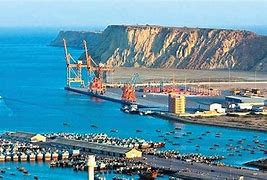In a rapidly changing and often turbulent global landscape, Chinese President Xi Jinping introduced the concept of “true multilateralism” at the 2021 Boao Forum for Asia. This idea is not just a response to contemporary challenges but also a framework for reimagining global governance. In the face of disordered security, imbalanced development, and ineffective global governance, Xi’s vision offers a potential path forward.
The Idea of True Multilateralism
Xi’s concept of true multilateralism emphasizes the necessity of global cooperation to address shared challenges such as geopolitical conflicts, major power rivalries, and crises in security and development. It calls for a collective approach that prioritizes dialogue, mutual respect, and equitable participation over unilateralism or selective partnerships that serve narrow interests.
By championing this vision, Xi seeks to clarify and differentiate true multilateralism from “pseudo-multilateralism” – systems where decision-making is dominated by a few powers, sidelining others. This approach insists on inclusivity, ensuring that all nations, regardless of size or strength, have an equal voice in global affairs.
True Multilateralism for a United Global Response
The urgency of global challenges, ranging from climate change and pandemics to regional conflicts, requires a united global response. The traditional forms of multilateralism have often faltered due to inequitable power dynamics and lack of trust among nations. True multilateralism, as Xi outlines, aligns with the broader historical trends of peace and development, fostering global consensus for sustainable and inclusive progress.
The concept also underscores the importance of respecting the sovereignty of nations and opposing unilateral sanctions or hegemonic practices that undermine international stability. It is presented as a practical solution to counter the fragmentation of international cooperation in a time of rising protectionism and geopolitical tensions.
Practice of True Multilateralism by China
China’s advocacy for true multilateralism is reflected in its active participation in global institutions and initiatives. From supporting the United Nation’s role in maintaining international peace to proposing the Belt and Road Initiative as a mechanism for shared development, China positions itself as a proponent of cooperative solutions.
Furthermore, by advocating reforms to global governance structures, Xi emphasizes the importance of making international institutions more representative and responsive to the needs of developing nations. This approach not only strengthens global unity but also ensures that multilateral platforms remain relevant and effective in addressing 21st-century challenges.
Reshaping Global Governance
Xi’s call for true multilateralism invites the international community to unite under a shared vision of fairness, inclusivity, and mutual benefit. While its success depends on the willingness of all nations to engage in genuine collaboration, the concept offers a compelling narrative for reshaping global governance in turbulent times.
By fostering an inclusive and balanced multilateral system, this vision aims to create a world where peace, development, and cooperation thrive: a future worth that is striving for.
Related Posts
- Xi advocates for multipolarity ahead of G20 Summit
- Xi highlights BRICS’ role in driving multipolarity, globalization

















